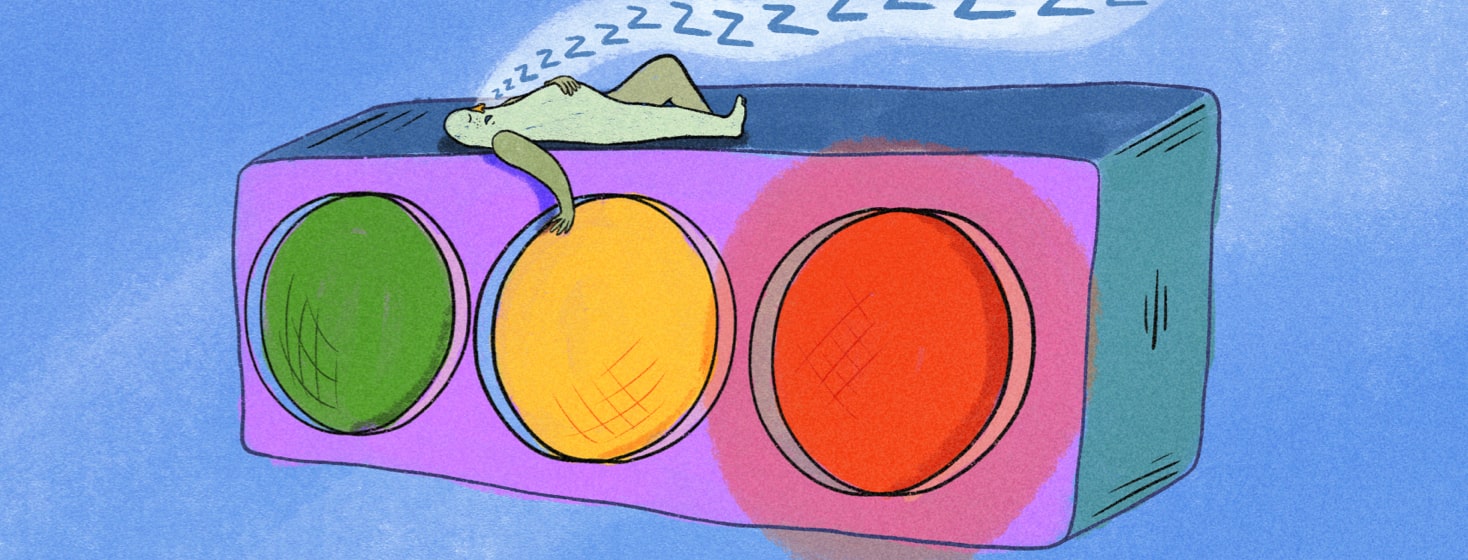Narcolepsy Stressors: Monitor, Limit, Avoid
When it comes to narcolepsy, I believe it’s important to not only know your triggers but to realise which factors exacerbate your symptoms.
I was diagnosed in 2018, and it has been a long road to understanding that, unlike those without narcolepsy, I have to take many things into consideration in order to minimise my symptoms in any way possible.
There are things I need to monitor, things I must limit, and things I have to avoid.
I found that using these 3 categories really helps me to understand how to deal with what I call "narcolepsy stressors."
1. Things I need to monitor
My sleep routine
I know this one sounds like the most obvious thing in the world, but for a long time, to me, monitoring my sleep had never crossed my mind.
Right after being diagnosed, no one told me that establishing a strict sleep schedule was almost mandatory for people with narcolepsy.
Stress
I’ve realised that whenever I’m feeling stressed, anxious, or overwhelmed, my daytime sleepiness becomes extremely uncontrollable. I find myself sleeping so much more throughout the day, and then my insomnia gets even worse at night.
Of course, stress isn’t something that is within our control, but if possible, it’s important to try and find activities or exercises that could help alleviate it as much as possible.
Medication
I live in Portugal, a country with very little narcolepsy awareness and even fewer options in terms of medication.
The medication we do have available only works for me if I take it exactly as I am told to. Any tiny deviation has a very immediate and negative impact on my psychological well-being.
2. Things I must limit
Eating
This probably isn’t a healthy habit at all, and I do not recommend this for anyone, but I've found that it has proved to help in easing my daytime sleepiness. During the day, I limit the majority of foods I eat up until 7 PM.
For example, I will only eat things like fruit, certain vegetables, some soups, and very light snacks during the day. After 7 PM, I eat whatever I like — especially carbs, because they help me sleep! Like I said, probably not the healthiest thing to do!
Cataplexy triggers
If you live with narcolepsy type 1, or narcolepsy with cataplexy, identifying your cataplexy triggers is crucial to being able to predict them!
There are triggers you can avoid, but for me, the most difficult are the ones you can’t always avoid. These are things like laughing, feeling angry, having sex, and even certain people in your life.
Oftentimes our biggest triggers can actually be those closest to us, which does make sense, since these people are the ones that can spark those deep emotions in us. Although we may not want to distance ourselves from those we love, it’s a difficult decision many of us have to face due to our condition.
3. Things I have to avoid
Pushing my limits
This is something I think many of us are guilty of, and this stems from countless factors. We want to live a "normal" life. We have goals we want to conquer and dreams we want to realise. We are seen by society as "perfectly capable," and therefore we feel that we have to try and act as though we are "perfectly capable." If we don’t, we are judged and accused of "not trying hard enough" or "making excuses," and so we must do our best to "fit in."
If you are anything like me, respecting your limits will be a constant struggle, but we have to keep trying.
Hot weather
I am someone who absolutely lives for summer and the beach! I love getting a tan and lying down on the sand under a hot sun. Unfortunately, my narcolepsy disagrees with hot weather.
Having lived for 6 years in an extremely hot African country, where summer lasts for 9 months out of the year, I have learned that this type of tropical climate simply isn’t compatible with my condition.
Put your health first
The most important thing of all, at the end of the day, is understanding yourself, your condition, and putting your health above everything, no matter what.
Are there certain things in daily life that you monitor, limit, or avoid in order to manage your narcolepsy symptoms? Share with us in the comments below.

Join the conversation